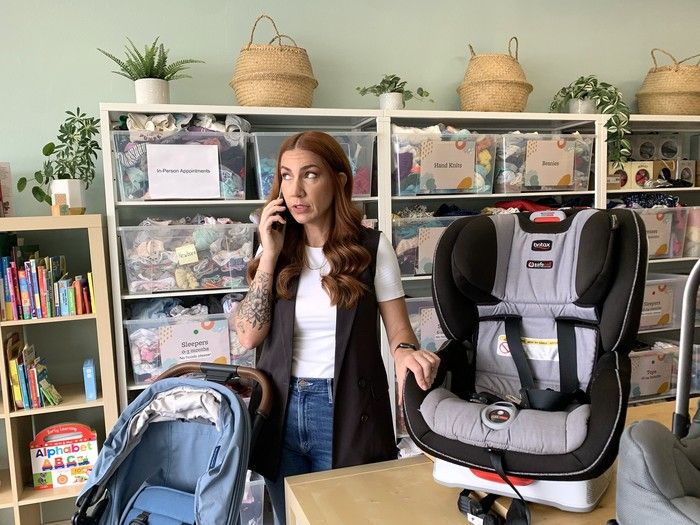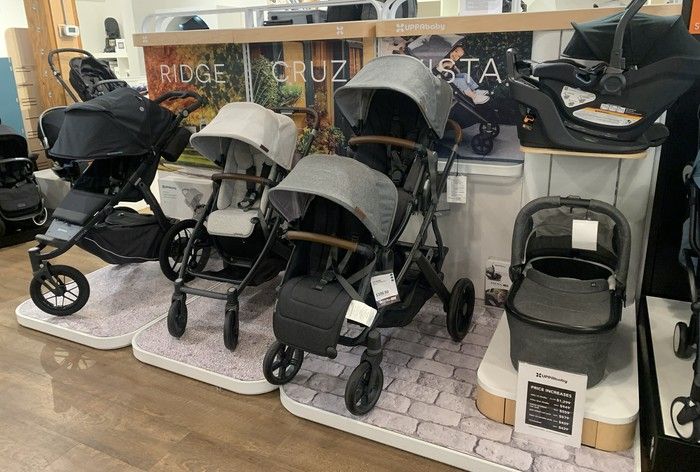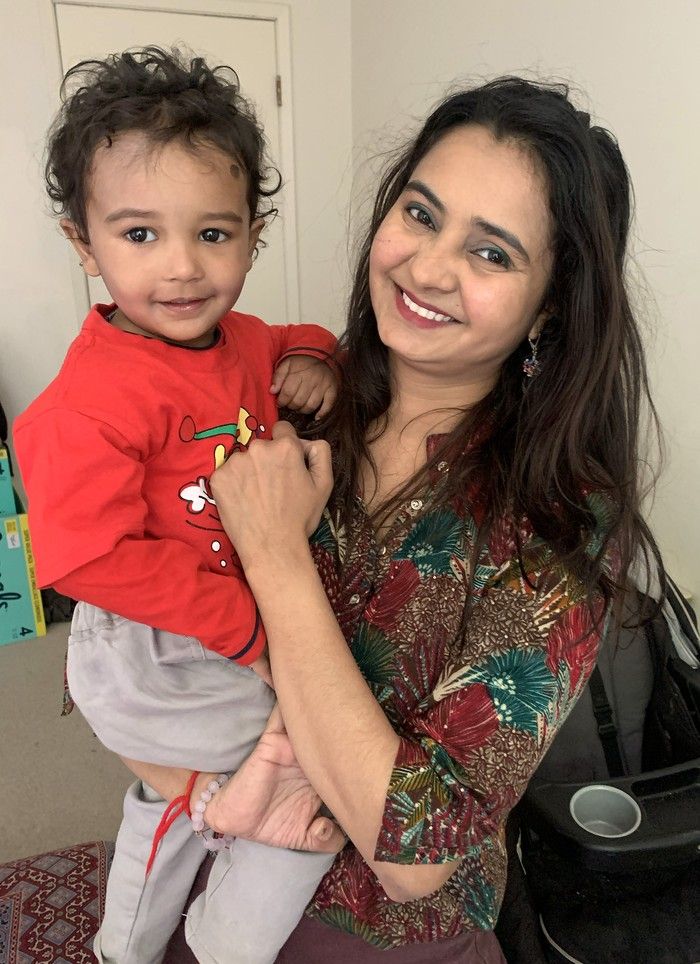
It just got more expensive to start a family.
U.S. tariffs are pushing up prices on many top brands of baby gear in Canada, including critical safety products, largely because most baby equipment is manufactured in Asia.
New parents, who spend on average $1,000 to $5,000 on car seats, strollers, cribs, high chairs and travel systems designed to meet exacting safety standards, will spend about 10 per cent more.
Although Canada has exempted most baby equipment from retaliatory tariffs, prices here are still affected by the 145 per cent tariffs imposed by the U.S. on goods manufactured in China, because most retailers here buy through U.S.-based distributors.
At West Coast Kids on Main Street, expectant parents are streaming into the store, which is offering prospective parents a window until May 12 to order UppaBaby products at the pre-tariff price, which is about $100 less per unit.
“Parents are worried. You can’t leave the hospital without a car seat,” said Christina Arevalo, the store’s manager. “Parents can order now and even if we can’t get it in right away, we will honour the current prices.”

Canada has only one manufacturer of baby car seats, Clek , but its products sell for far more than imported brands, and its cheapest car seat, at $399.99, is sold out.
An estimated 90 per cent of baby care products and the parts that go into making baby gear are made in China, according to the Juvenile Products Manufacturers Association , a U.S. trade group.
UppaBaby’s most popular stroller, the Vista, will jump from $1,199.00 to $1,299. Car seats, such as the UppaBaby Aria, will jump from $549.99 to $579.99.
The supply chain disruptions may mean long waits, even if parents order now, said Arevalo.
“The factories are in China. If these companies don’t have enough orders to fill a container, they will wait to send the shipment.”
There has been a 35 to 45 per cent drop in container ships arriving in U.S. ports, said Dr. Samuel Roscoe, a lecturer in supply chain management at UBC’s Sauder School of Business. “A lot of that is kids equipment and toys coming from China.”
The one Canadian manufacturer would not be able to ramp up production in sufficient volume to meet the needs of families, said Roscoe.
“The mantra at U.S. companies at the moment is how do we get around these tariffs, they are not looking at re-shoring manufacturing.”
Nidhi Joshi, 32, whose two-year-old, Ved, has outgrown his car seat, is stressed.
“He needs a new one. Those prices are my whole paycheque.”
When Ved was born, his parents needed even more help.

“We needed diapers, baby gear, a crib, a high chair, a stroller, a car seat, nothing was in our budget,” said Joshi.
The family was referred to BabyGoRound , a non-profit that provides essential baby items to Lower Mainland families in need.
Now BabyGoRound is grappling with the impact of the tariff war.
Meghan Neufeld, executive director of BabyGoRound, recently cancelled the purchase of 50 baby travel systems that include a car seat and stroller because the price jumped.
“We are already feeling the impact,” said Neufeld.
Some of the equipment at BabyGoRound, which works with more than 200 referral agencies in the Lower Mainland, is donated and gently used, but they also purchase items, especially car seats, which are not recommended for reuse.
“This could push parents into a situation where they are making decisions that are not ideal,” said Neufeld.
Car seats have to fit the car, come with a manual, be properly installed and can’t be reused by another family if they have been involved in a car accident. And they have expiry dates, said Neufeld. “It’s tricky.”
Strollers must pass a safety inspections, too. “The tires can’t be deflated or have holes, the seams and fabric, brakes and safety belts must be intact,” said Neufeld.
Neufeld said BabyGoRound is concerned that rising prices is another barrier to donation.
“Will people hesitate to donate because they are holding on to items, or giving them to friends and family?” said Neufeld.
Everything Joshi received from BabyGoRound will go back to BabyGoRound when Ved is done with it. It’s how to get what he needs for his next growth spurt she’s worried about.